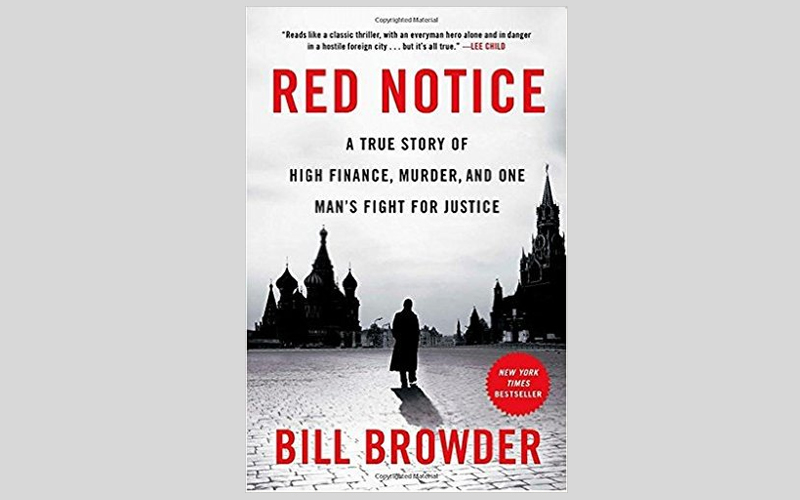Bill Browder, the famous hedge fund manager whose grandfather was the head of the Communist Party in the United States, is someone I have known for years. My personal experience in Russia is limited to a trip I took with a group from The RAND Corporation to meet senior officials and oligarchs shortly after the Russian financial crisis of 1998. The place was corrupt from top to bottom. At the top, a $5 billion IMF loan to Russia’s central bank disappeared in a matter of days. At the bottom, an elderly beggar I engaged in conversation outside of a MacDonald’s told me how much she had to pay for the privilege of begging in that particular location.
But none of that prepared me for the shocking tale of Russian governmental corruption that unfolds in Red Notice. It’s a page-turner that tells how Browder went from an ultra-left-wing intellectual childhood to build the largest hedge fund in Russia. His lineage gave him special access to Mother Russia and in post-Soviet Moscow, Browder tapped into unparalleled investment potential. Massive state-owned companies were being privatized, setting off the next gold rush. His private equity firm, Hermitage Capital, was founded amidst the surge of Russian oligarchs acquiring privatization certificate “vouchers,” which enabled them to take control of whole industries for a tiny fraction of their fair value. (The vouchers valued the entire Russian economy at $10 billion dollars, not much more than half the valuation of Twitter).
Browder got in on the action during this new era of Soviet largess, but soon had to grapple with a share dilution scheme that effectively stole two-thirds of his ownership of one of his Russian companies. While Browder initially aligned himself with Putin, the relationship soured when Browder began agitating for Gazprom (Russia’s largest company) to exercise greater corporate transparency. In reaction to Browder’s calls for reform, the Russian government had him deported.
In the meantime, a gaggle of Russian police and tax authorities pinched three of his companies. Though Browder had gotten wise to the scheme and stripped the companies of their assets, the marauders doubled down by successfully claiming a fallacious $230 million tax refund with respect to the now worthless companies. Browder responded by attempting to expose the fraud, but his efforts culminated in the brutal murder of his legal counsel, Sergei Magnitsky. As a result of Browder’s subsequent crusade, Congress enacted legislation—The Magnitsky Act—which froze the US assets of an enumerated list of Russian officials involved in Magnitsky’s death.
Red Notice is a riveting biography that often resembles the titillating plot of an Ian Fleming thriller. I am still shocked by the sophisticated nature of the Russian government’s transgressions. Browder’s story is truly stranger than fiction, and it’s a must-read for anyone interested in the intersection of finance, politics, and the lawless machinations of the modern Russian state. And yes, it might make a good movie—Bill tells me he hopes he will be played by George Clooney.
–Robert Rosenkranz




